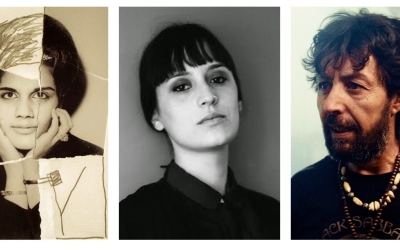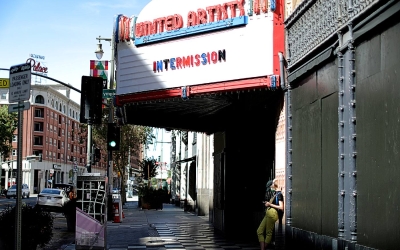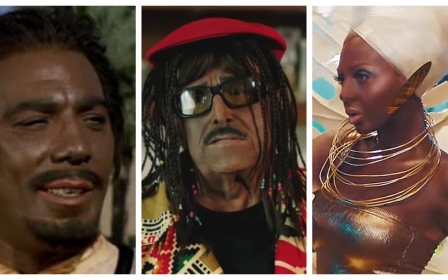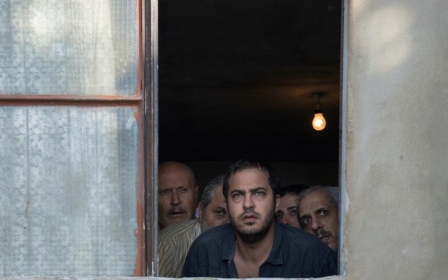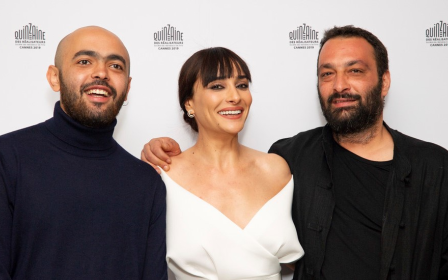The Undoing: How a tale of murderous class warfare parallels US politics
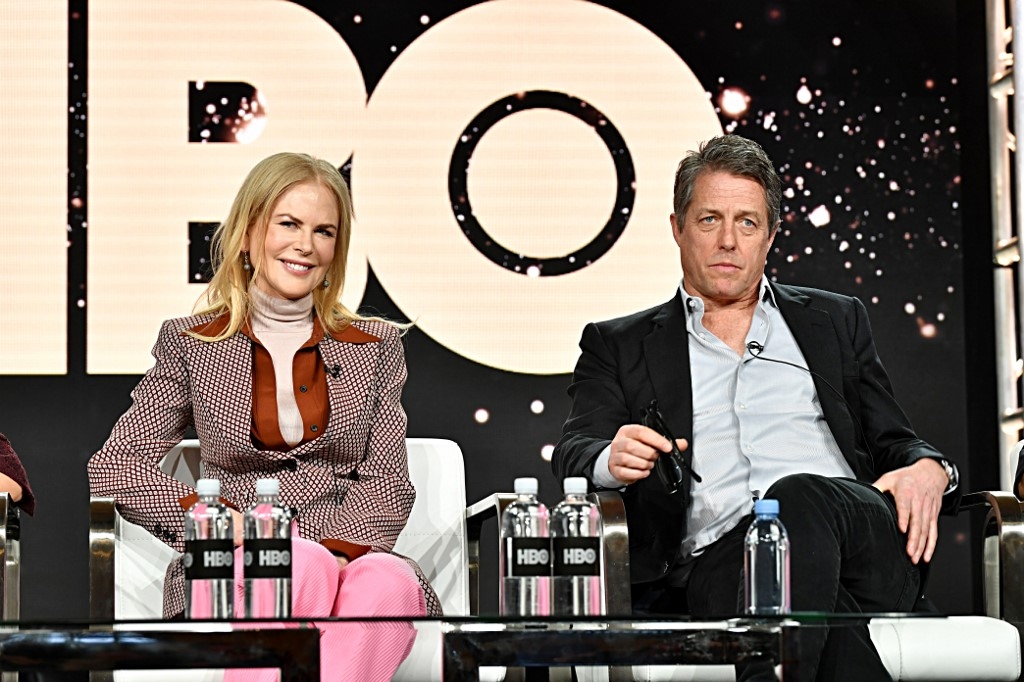
Years and decades from now, when historians look back at the four years of Donald Trump’s presidency to figure out what happened, they will look for archival signposts that marked the terrors of the virtual fascism he personified. To help the next generation of critical thinkers, I wish to offer them a solid piece of cultural evidence: a cinematic sublimation of class warfare, hatred and murder.
In November, as Covid-19 cases were skyrocketing and we were mostly sheltering in place, wondering whether Trump would leave any stone unturned in exposing the dubious claim of American racism to “democracy”, we were busy watching a gruesome murder mystery on HBO involving two New York families - young couples and their respective children living on opposite sides of Manhattan, the rich and opulent part around Central Park and the poor and struggling part around Harlem.
The boldfaced murder in the miniseries is one of the most horrid examples of class antagonism, class hatred and class warfare, titillating as an 'affair'
The Undoing is a miniseries based on the 2014 novel You Should Have Known by Jean Hanff Korelitz, written and produced by David E Kelley, and directed by Susanne Bier. The show gives New Yorkers a vicarious sense of our city at a time when we can only reimagine our enduring memories of it.
In the first episode, we get to know two families brought together by cruel fate. Much of the attention, screen time and affection of the camera - and of course the paycheques of the actors playing them - is for the rich and powerful family and their drama, with only tangential and alienated attention on the second, poor, struggling family from Harlem.
Let me reverse the angle of the camera and the affection of the script and start with the poor family: the husband, the wife, their son, and their newly born baby.
New MEE newsletter: Jerusalem Dispatch
Sign up to get the latest insights and analysis on Israel-Palestine, alongside Turkey Unpacked and other MEE newsletters
Elena Alves (Matilda De Angelis), her husband Fernando (Ismael Cruz Cordova), their son Miguel (Edan Alexander) and their newly born baby live in Harlem. She is a struggling artist. He is a caring husband and father. Through the “generosity” of another couple in the richer part of the city, Miguel attends a posh private school on a scholarship. The husband of the same benevolent rich family was also helping Miguel’s treatment of a Wilms' tumour (a kidney cancer common in children).
Now let’s meet the other family upon whom the script, the director and the camera’s full and undivided attention remains. Grace Fraser (Nicole Kidman) is a successful psychologist who lives in the rich and well-manicured part of Manhattan with her handsome husband, Jonathan (Hugh Grant), an equally prominent oncologist, and their young son, Henry (Noah Jupe), who attends the elite Reardon School. They are a lovely-looking family who would most definitely hate Trump and vote for Joe Biden if they were real.
Murder mystery
As one real-estate reviewer of the show put it aptly: “The Frasers live in a two-level townhouse right across the street from Central Park on East 63rd Street, in the land of Goldendoodles.” The reviewer notes that the Frasers “and their circle of friends do what tony Upper East Siders are wont to do: Wear fine clothing, get chauffeured around by their drivers, and talk incessantly about the ritzy private school their kids attend". On the other side of the city, “Elena, a struggling artist, lives in a cramped apartment in a walkup building in Harlem”.
If you have not yet seen the miniseries and plan to do so, please stop reading the rest of this column, for I am about to reveal the main murder mystery of the plot.
The drama begins with a fundraising event by parents at the rich school to help finance scholarships for poor students they bring to their private school, in order to feel good about themselves. Here the two families are brought together through the figure of Elena Alves, who is invited to this event to meet and greet her sons’ benefactors. She is young and beautiful, and she draws the attention of many men and the jealousy of many women at the gathering. But she soon leaves, and the next day, we find out she has been brutally murdered.
A police investigation starts, and the first suspect is the poor husband, Fernando Alves. The drama unfolds for six weeks and six episodes, at the end of which we discover that Jonathan Fraser had an affair with Elena Alves and ended up brutally murdering her.
What went wrong? Why did Jonathan murder Elena? This is the question that most reviews I have read fail to consider. They are preoccupied with a host of other things, but not the reason why Jonathan kills Elena.
Screaming for attention
In one review after another, we read all about Nicole Kidman’s coats and Donald Sutherland’s eyebrows, with not a mention of the horrid class antagonism that screams for attention in the series.
The boldfaced murder in the miniseries is one of the most horrid examples of class antagonism, class hatred and class warfare, titillating as an “affair”. Jonathan has no problem seducing and having ravenous sex with Elena until the moment that she says she wishes to bring their two families together - to share the love, affection and privileges he enjoys with his wife and son.
That little speech is the long history of class warfare in a nutshell
As soon as Elena hints at fostering a relationship with Grace, Jonathan flips. Elena tells him she hoped his son Henry would be “like a big brother” to Miguel. The mere idea drives Jonathan to murderous rage. “You stay away from my family,” he yells at Elena in a flashback of the murder scene. “If you go anywhere near my family again, my wife or my kid, I will hurt you. I will f***ing hurt you!” And he goes on to brutally murder her.
But the pivotal moment of the whole show is not the murder scene. It is when Grace’s father, Franklin Reinhardt (Donald Sutherland), goes to his grandson’s school because the principal had threatened to suspend the young boy due to the scandal.
A telling monologue
The grandfather comes and sits royally at the principal’s office, and politely asks him to restore his innocent grandson back to school. The principal resists. The grandfather reminds him of his generous contributions to the school.
The principal persists and says the board of trustees demanded the suspension - at which point the grandfather stares at him with a steely gaze and bursts into a little speech of such vulgar brutality that is unrepeatable in any decent gathering. But that little speech is the long history of class warfare in a nutshell. That murderous speech - punctuated with me and mine - says what Reinhardt’s son-in-law enacts with a hammer on the skull of an innocent woman who had dared to dream of equality.
What Donald Trump, the real-life version of Franklin Reinhardt, represents in this society, this culture, this country, and the entire terrorising history of the US, has yet to find any meaningful genre to portray it in full. Until such time, re-read that monologue. That is Trump’s son-in-law, Jared Kushner, a Jonathan Fraser wannabe, talking to the leaders of Bahrain, the UAE, Sudan and Morocco.
The views expressed in this article belong to the author and do not necessarily reflect the editorial policy of Middle East Eye.
Middle East Eye delivers independent and unrivalled coverage and analysis of the Middle East, North Africa and beyond. To learn more about republishing this content and the associated fees, please fill out this form. More about MEE can be found here.



